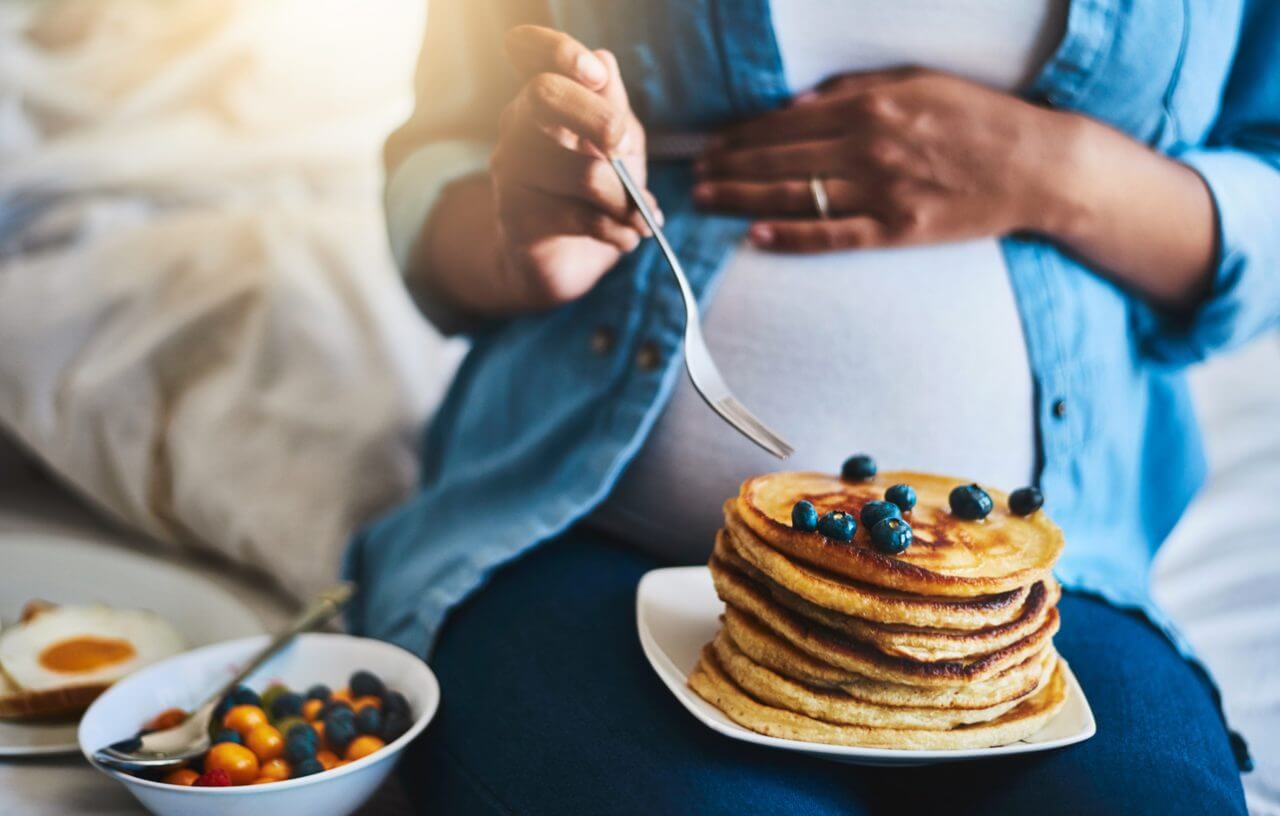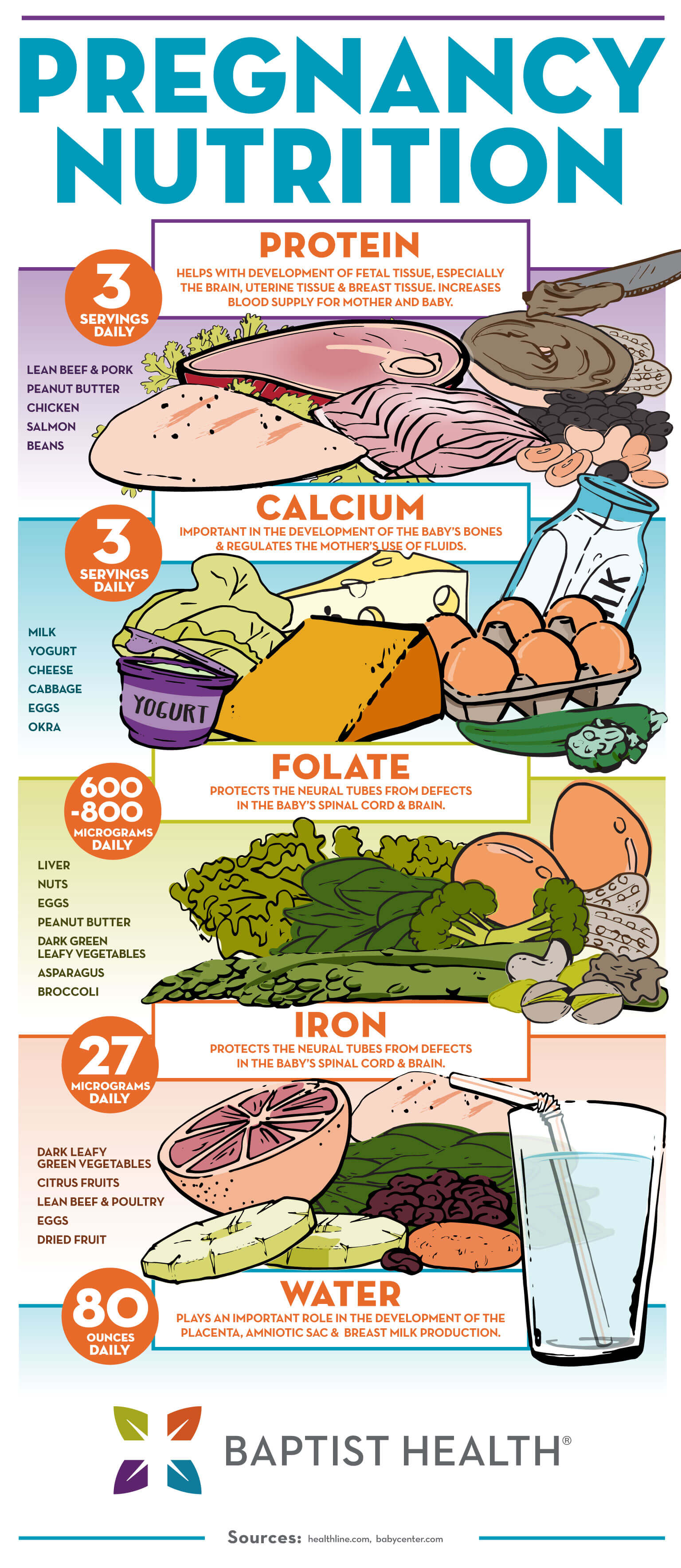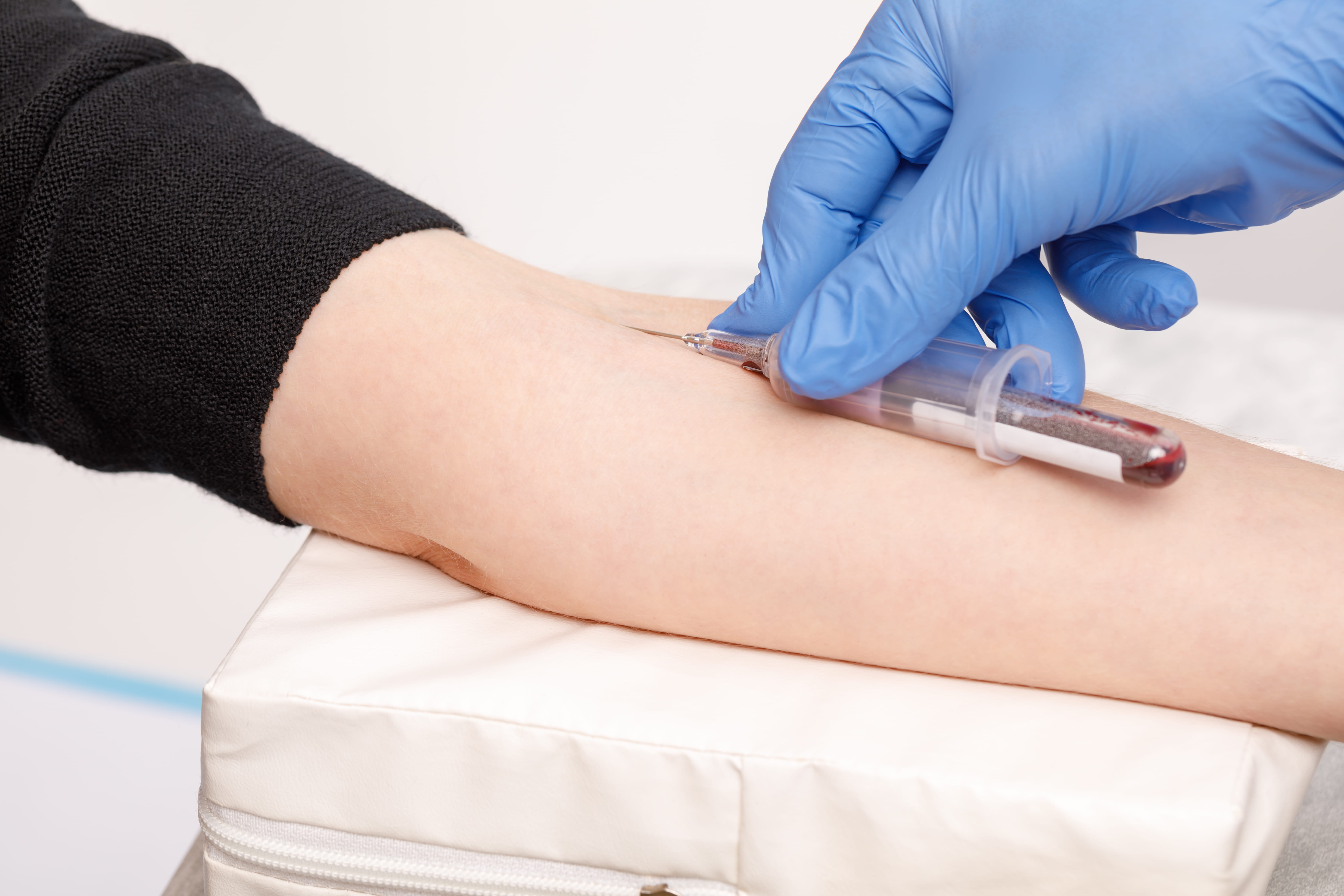Prenatal Nutrition During Pregnancy (Infographic)

Staying healthy during pregnancy can sometimes feel like a full-time job. Monitoring physical and hormonal changes, exercising, doctor visits and, of course, eating right create a balancing act for expectant moms. Proper nutrition will play an important role in the baby’s growth and development as well as ensuring a healthy pregnancy process.
In addition to the overall importance of nutrition, some nutrients, including protein, calcium, folate, and iron are crucial to the health of the pregnancy and the development of the baby.

Nutritional Needs During Pregnancy
Protein
Protein is critical to proper development of fetal tissue, especially the brain. Uterine tissue, breast tissue as well as increased blood supply for mother and baby also require higher amounts of protein. Good sources of protein include:
Daily recommendation – three servings
Calcium
Calcium is important in the development of the baby’s bones and regulates the mother’s use of fluids. Calcium-rich foods include:
- Milk yogurt
- Cheese
- Cabbage
- Eggs
- Okra
Daily recommendation – three servings
Folate
Folate helps with the development of the baby’s neural tubes, from which the baby’s spine and brain form. It’s known to prevent neural tube defects, specifically spina bifida and anencephaly. Sources of folate include:
- Liver
- Nuts
- Eggs
- Peanut butter
- Dark green leafy vegetables
- Asparagus
- Broccoli
Daily recommendation – 600-800 micrograms
Iron
With the help of sodium, potassium, and water, iron is critical to producing the increased blood flow that improves oxygen supply for mother and baby. Sources of iron include:
- Dark leafy green vegetables
- Citrus fruits
- Lean beef and poultry
- Eggs
- Dried fruit
Daily recommendation – 27 milligrams
Water
Water plays an important role in the development of the placenta and amniotic sac. The effects of dehydration while pregnant can result in many problems including neural tube defects, low amniotic fluid, inadequate breast milk production, and can cause premature labor.
Daily recommendation – 80 ounces.
Vitamins
As with any healthy diet, it can be difficult to get these recommended nutrients every day. Prenatal vitamins are a helpful asset to ensure the health of the mother and baby. Before taking any prenatal vitamins, expecting mothers should talk to their doctor about which ones to take.
Read up!
This article is just a beginning to all there is to know about a healthy diet during pregnancy. Your doctor can provide additional information on prenatal nutrition along with your family and friends who will have recommendations to help you expand your nutritional expertise! Learn more about planning for a healthy pregnancy.



